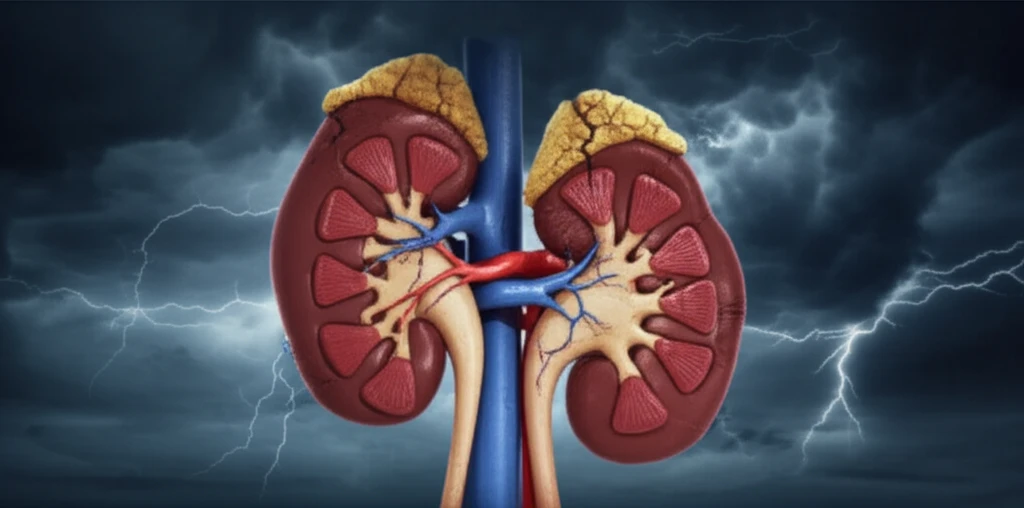
Kidney Function's Hidden Link to Heart Health: What You Need to Know
"New research reveals how declining kidney function significantly raises the risk of blood clots and bleeding in atrial fibrillation patients, challenging common treatment strategies."
Atrial fibrillation (AFib), a common heart rhythm disorder, affects millions worldwide. While the primary concern is stroke prevention, the delicate balance between preventing blood clots and avoiding excessive bleeding requires careful consideration, especially when kidney function is compromised.
A groundbreaking study, the UMBRIA-FA study, sheds light on the intricate relationship between kidney function, stroke/thromboembolism risk, and bleeding risk in patients with AFib. This research challenges conventional wisdom and highlights the need for personalized treatment strategies based on a patient's kidney health.
This article delves into the key findings of the UMBRIA-FA study, explaining how declining kidney function can significantly impact the risk of adverse events in AFib patients and what this means for treatment decisions. We'll explore the implications for both patients and healthcare providers, offering insights into a more tailored approach to managing AFib in the context of kidney disease.
The Alarming Connection: Declining Kidney Function, Increased Risks

The UMBRIA-FA study included a cohort of 1,847 patients with AFib, carefully examining the link between their kidney function (measured by estimated glomerular filtration rate or eGFR) and the occurrence of stroke, thromboembolism, and bleeding events. The study revealed a clear and concerning trend: as kidney function declined, the risk of both stroke/thromboembolism and bleeding significantly increased.
- A significant association between declining kidney function and increased risk of stroke/thromboembolism and bleeding in patients with atrial fibrillation.
- Patients with lower eGFRs (indicating poorer kidney function) had higher CHA2DS2VASc and HAS-BLED scores, suggesting a greater overall risk profile.
- The use of VKA (vitamin K antagonists like warfarin) was more prevalent in patients with significantly reduced kidney function (eGFR <30 ml/min/1.73m2).
- Conversely, the prescription of newer oral anticoagulants (NVKA) was less common in patients with severely impaired kidney function.
Rethinking Treatment Strategies: A Call for Personalized Care
The UMBRIA-FA study underscores the critical need for a more individualized approach to managing AFib, particularly in patients with compromised kidney function. Simply put, a one-size-fits-all treatment strategy may not be sufficient to address the complex interplay of risks and benefits in this vulnerable population.
The study's findings advocate for a more cautious and nuanced approach to anticoagulation therapy in patients with AFib and kidney disease. This includes a thorough assessment of kidney function, careful consideration of the individual patient's risk profile (including both stroke and bleeding risks), and a thoughtful discussion about the potential benefits and risks of different anticoagulation options.
Ultimately, the goal is to optimize treatment strategies to minimize the risk of adverse events and improve outcomes for all patients with AFib, regardless of their kidney function. Further research is needed to refine these strategies and develop evidence-based guidelines for managing AFib in the context of chronic kidney disease.
